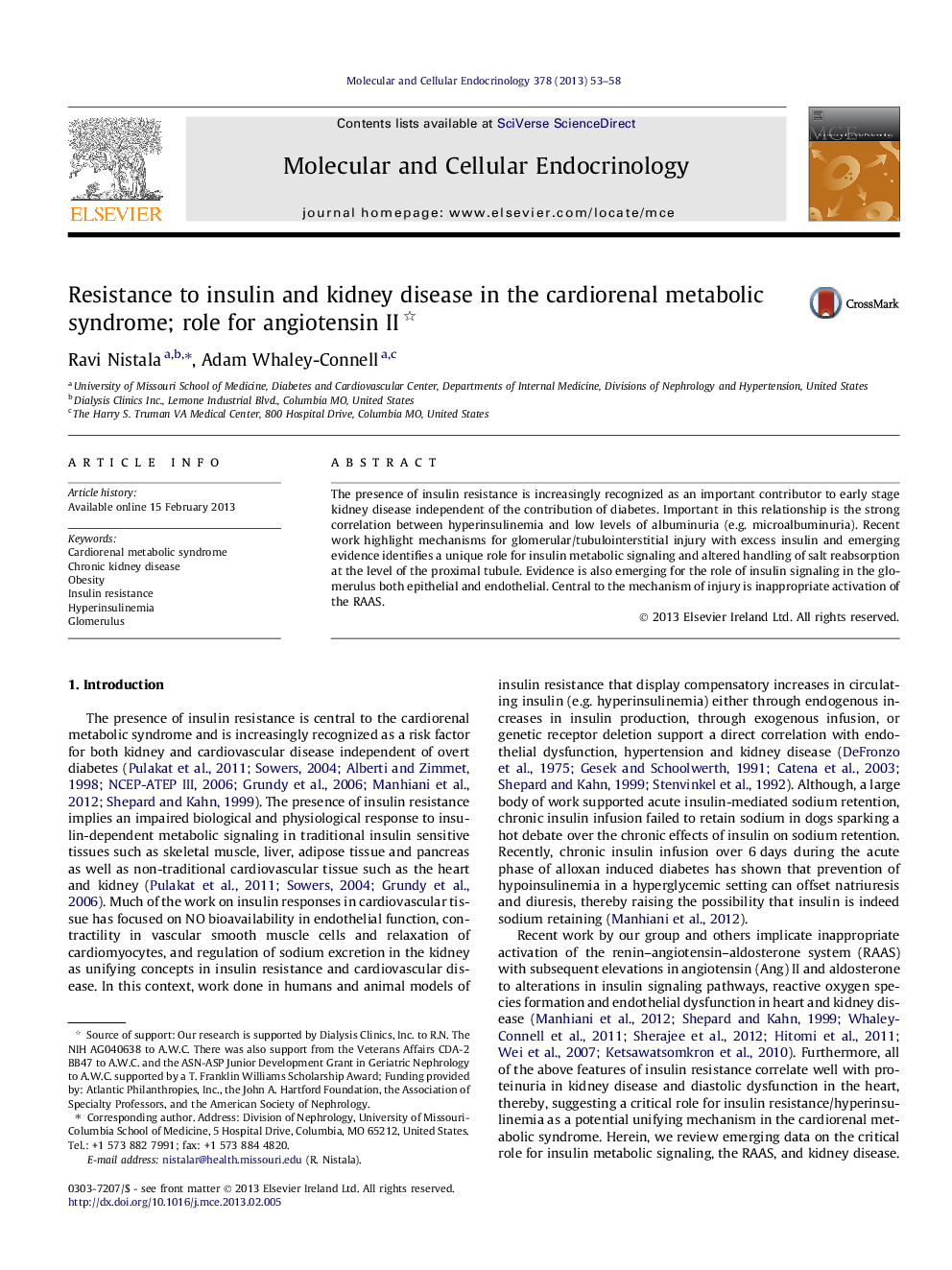| Article ID | Journal | Published Year | Pages | File Type |
|---|---|---|---|---|
| 2196156 | Molecular and Cellular Endocrinology | 2013 | 6 Pages |
The presence of insulin resistance is increasingly recognized as an important contributor to early stage kidney disease independent of the contribution of diabetes. Important in this relationship is the strong correlation between hyperinsulinemia and low levels of albuminuria (e.g. microalbuminuria). Recent work highlight mechanisms for glomerular/tubulointerstitial injury with excess insulin and emerging evidence identifies a unique role for insulin metabolic signaling and altered handling of salt reabsorption at the level of the proximal tubule. Evidence is also emerging for the role of insulin signaling in the glomerulus both epithelial and endothelial. Central to the mechanism of injury is inappropriate activation of the RAAS.
► Insulin resistance without diabetes may be a feature of early stage kidney disease in the cardiorenal metabolic syndrome. ► Early proteinuria/microalbuminuria may predict presence and progression of kidney disease. ► Proteinuria in insulin resistant subjects may have glomerular/tubulointerstitial origins. ► Insulin may play an important role in salt homeostasis. ► Inappropriate RAAS activation is central to insulin resistance and kidney dysfunction.
